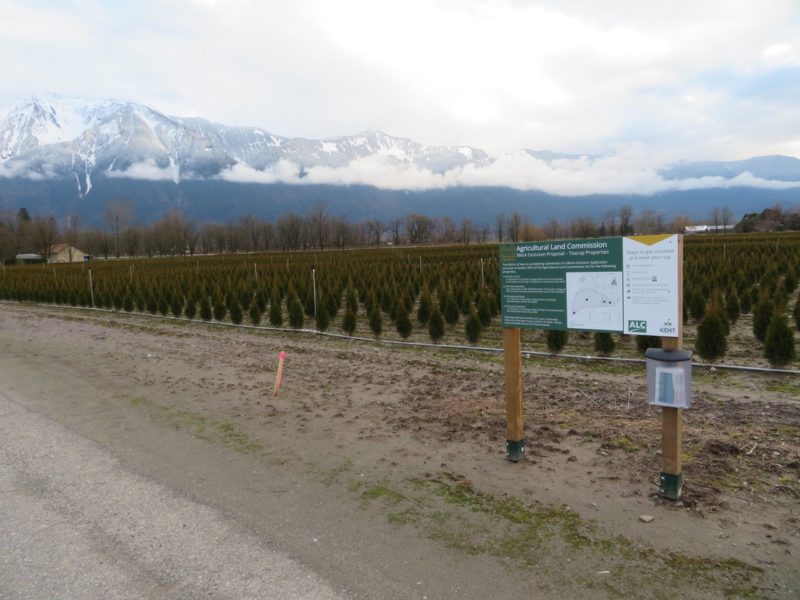BC’s Agricultural Land Commission has stood firm against a bid by the District of Kent to exclude four parcels totalling 43 acres for residential development.
Often referred to as the Teacup properties, the parcels were designated a residential reserve in Kent’s official community pan in 2001. But in 2005, the ALC told the district “that any plans to develop this area for non-farm uses would be inconsistent with the ALC Act.” The commission reiterated this position in 2014.
The latest decision, handed down last week, confirms that stance.
“The Commission finds that the District’s residential growth objectives do not outweigh the mandate and purpose of the Commission to prioritize protecting the size, integrity, and continuity of the ALR and its use for farming,” it said in rejecting the application.
The commission also noted that a majority of public correspondence on the matter “expressed significant concern with the concept of displacing prime agricultural land for residential development.”
While a much larger tract of 101 acres was proposed for inclusion and the district had proposed programs to support local agriculture to offset the loss, the commission said no amount of land included could compensate for excluding land from the ALR.
“The concept of swapping lands is conceptually flawed in that it presupposes the overall outcome will result in a ‘net benefit’ for agriculture when, in fact, the removal of agricultural land from the ALR to facilitate non-agricultural development represents a loss of agricultural land,” the decision reads.
Members of the ALC executive committee, chaired by Jennifer Dyson, were unanimous in their reasons for rejecting the exclusion. However, they welcomed the inclusion application if the property owner wishes to proceed.
The applications were submitted by the District of Kent, which served as agent for the property owners per the rules governing exclusion applications implemented under Bill 15.
While the agent has up to a year to seek a reconsideration of the decision, it can only do so if no previous request has been made and either new evidence becomes available regarding the application or evidence exists that the decision was made based on false information.


 Fruit growers seek workers
Fruit growers seek workers